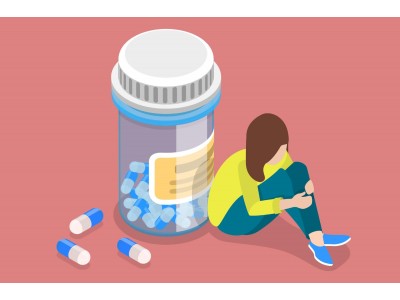Doctors often prescribe anxiety medication for depression because the two conditions frequently coexist and share overlapping symptoms. Many individuals with depression also experience significant anxiety, which can exacerbate depressive symptoms and complicate treatment. Addressing both conditions simultaneously can improve overall mental health outcomes.
One reason for this approach is the effectiveness of certain medications in treating both anxiety and depression. Selective serotonin reuptake inhibitors (SSRIs) and serotonin-norepinephrine reuptake inhibitors (SNRIs) are commonly prescribed for both disorders. These medications work by increasing the levels of neurotransmitters like serotonin and norepinephrine in the brain, which can help alleviate symptoms of both depression and anxiety. By targeting the underlying neurochemical imbalances that contribute to both conditions, SSRIs and SNRIs can provide relief from the wide range of symptoms that patients experience.
Moreover, treating anxiety can directly improve depressive symptoms. Anxiety can significantly impact a person's daily functioning, leading to increased stress, poor sleep, and reduced ability to engage in enjoyable activities or maintain social connections. By managing anxiety, individuals may experience an overall improvement in their mood and ability to cope with life's challenges, thereby alleviating depressive symptoms as well.
Additionally, some anxiety medications, such as benzodiazepines, may be used on a short-term basis to provide rapid relief from acute anxiety symptoms, which can be particularly beneficial in the early stages of depression treatment. However, benzodiazepines are generally not recommended for long-term use due to the risk of dependence and other side effects.
Another reason for this dual approach is the holistic perspective many doctors adopt when treating mental health disorders. Mental health conditions are often interconnected, and treating one can have positive effects on the other. By addressing both anxiety and depression together, doctors aim to provide comprehensive care that addresses the full spectrum of an individual's symptoms.
In conclusion, doctors prescribe anxiety medication for depression to provide a comprehensive treatment that addresses both conditions simultaneously, utilizing medications that can effectively target the overlapping symptoms and underlying neurochemical imbalances of anxiety and depression. This integrated approach can lead to better overall mental health outcomes and improved quality of life for patients.
